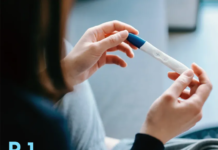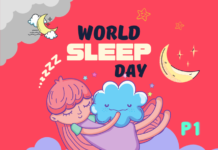Dizziness and fatigue are two symptoms that may occur with cancer. There are many possible causes of these symptoms.
They may be due to the cancer itself or the side effects of cancer treatment. Cancer is a group of diseases in which cells begin to grow and divide uncontrollably, eventually forming a tumor.
A little over 1.9 million new diagnoses of cancer are expected to be made in the United States in 2023, according to the American Cancer Society.
People with cancer can experience a wide variety of symptoms, including dizziness and fatigue. Keep reading below as we discuss these symptoms and what can cause them.
Why does cancer make you tired?

Simply put, fatigue is when you feel extremely tired or exhausted. Fatigue is very common in people with cancer. A 2023 study found that 40–70% of people with cancer have fatigue, compared to about 10% of the rest of the population.
Cancer-related fatigue feels different than the fatigue that other individuals experience and can, therefore, have a significant effect on quality of life. People with cancer-related fatigue may find that their fatigue:
- can vary from day to day
- causes them to become tired after doing less activities
- isn’t effectively alleviated with rest or sleep
- makes it difficult to do daily activities, including household tasks, work, or social interactions
What causes cancer-related fatigue?
The causes of cancer-related fatigue are complex. If you have cancer and are experiencing fatigue, it’s likely due to multiple causes instead of just one.
Effects of the cancer itself
In some situations, cancer-related fatigue can be due to the effects of the cancer itself. A few examples of this include:
- Cancer can cause increases in inflammation in your body, which may result in fatigue.
- Some cancers may affect the levels of various hormones, leading to fatigue.
- Blood cancers like leukemia and multiple myeloma can affect the number of healthy red blood cells in the bone marrow, leading to anemia, a common cause of fatigue.
- Lung cancer can lead to shortness of breath due to lower-than-usual oxygen levels, which may cause you to tire quickly and feel fatigued.

Effects of the cancer treatment
Fatigue is also a common side effect of cancer treatment. Many types of cancer treatment can cause fatigue, including:
- chemotherapy
- radiation therapy
- immunotherapy
- hormone therapy
- surgery
According to the National Cancer Institute, it’s unclear how exactly various cancer treatments lead to fatigue. However, anemia, a side effect of treatments like chemotherapy, is a frequent cause of fatigue.
It’s also possible for other factors to contribute to cancer-related fatigue. These include:
- feelings of anxiety or depression
- reduced quality sleep
- changes in nutritional requirements
- non-cancer-related medications
When might cancer make you dizzy?
When you’re dizzy, you may feel lightheaded, faint, or unsteady. Vertigo is a related condition where you feel as if you or the environment around you are spinning.

If you have cancer and are experiencing dizziness, it may be due to one or more of the causes below:
- the cancer itself, such as in a brain tumor
- anemia, which can happen due to the effects of cancer or cancer treatment
- side effects of cancer treatments, such as receiving radiation therapy to the brain, having chemotherapy, or taking certain types of hormone therapy
- feelings of stress and anxiety
- dehydration, which may happen due to nausea and vomiting or diarrhea related to the cancer or cancer treatment
- noncancer-related medications, such as:
- antidepressants
- antiseizure drugs
- blood pressure medications
What are the warning signs of cancer?
There are several warning signs of cancer to be aware of. These include:
- A lump or bump in any part of your body that doesn’t go away or gets larger
- Cough or hoarse voice that doesn’t go away
- skin changes, such as:
- changes in a mole
- a bump, lump, or lesion that bleeds
- sores that don’t heal
4. Noticeable changes in bowel or bladder habits, such as:
- difficult or painful urination
- more frequent urination
- frequent diarrhea or constipation
- a change in the appearance of your stool
5. Unusual bleeding or discharge like:
- blood in your urine or stool
- bruising or bleeding for no known reason
- unusual vaginal bleeding, such as very heavy periods, bleeding between periods, or bleeding after menopause
- unusual discharge from any part of your body, such as the vagina, penis, or nipples
6. Persistent problems with eating and digestion, such as:
- trouble swallowing
- noticeable reduction in appetite
- abdominal pain
- nausea or vomiting
7. significant weight loss or weight gain that was unintended
8. Fever or night sweats for no known reason
9. Severe fatigue that doesn’t go away
It’s important to note that many of these symptoms can also happen due to other health conditions that aren’t cancer.
If you’re having any of the above symptoms, particularly if they’re recurring, persistent, or getting worse, make an appointment with a doctor to discuss them. A doctor can help to determine what may be causing your symptoms and develop an appropriate treatment plan.
Takeaway
Fatigue and dizziness are two symptoms that may happen with cancer. They often occur due to the effects of the cancer itself or due to side effects of cancer treatment.
Several different types of symptoms may be warning signs of cancer. If you have any of these, especially if they’re persistent, recurring, or worsen, see a doctor to discuss them.



















